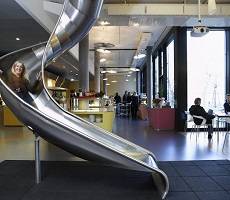February 23, 2016
Belief in a corporate wellness narrative is more important than action 0
 The complexities of wellness at work are laid bare in a new report from the US based pressure group Global Wellness Institute. The most eye-catching conclusion from The Future of Wellness at Work study is that it’s not actual wellness programmes that do most to boost worker health and productivity, but whether employees identify that company as ‘caring’. The report claims that ‘unwellness’ now costs the US around $2.2 trillion each year, equivalent to 12 percent of GDP. The report is published alongside a white paper which lays out the findings from a survey of American employees. Unlocking the Power of Company Caring gauges how employees feel about their work culture and wellness programmes. The main finding of the two reports is that to understand what has the most powerful impact on employee wellness ‘you must look well beyond the wellness programme’ itself. Instead, the pivotal factor is whether an employee identifies their company as caring about their health and wellness.
The complexities of wellness at work are laid bare in a new report from the US based pressure group Global Wellness Institute. The most eye-catching conclusion from The Future of Wellness at Work study is that it’s not actual wellness programmes that do most to boost worker health and productivity, but whether employees identify that company as ‘caring’. The report claims that ‘unwellness’ now costs the US around $2.2 trillion each year, equivalent to 12 percent of GDP. The report is published alongside a white paper which lays out the findings from a survey of American employees. Unlocking the Power of Company Caring gauges how employees feel about their work culture and wellness programmes. The main finding of the two reports is that to understand what has the most powerful impact on employee wellness ‘you must look well beyond the wellness programme’ itself. Instead, the pivotal factor is whether an employee identifies their company as caring about their health and wellness.
























May 27, 2015
Smart buildings, smart cities and the promise of infinite data
by Paul Doherty • Cities, Comment, Facilities management, Technology
(more…)